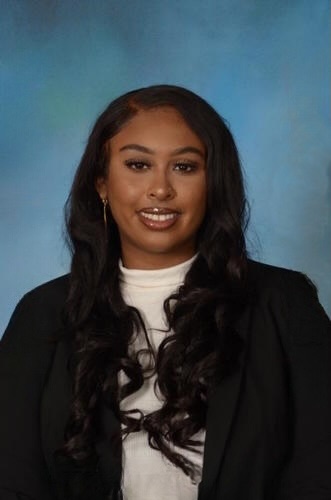By Anehita Okojie

Farhiya Ali joined Blackbook University as a development intern in 2019 after Ibrahim Baldé, one of digital platform’s founders, reached out to the Black campus community seeking women in STEM to be a part of the organization, which equips Black students with relevant information, opportunities, and a network to connect with their peers. Ali’s passion for accessibility and using technology for social good drew her in. Through her involvement with the 2020-21 Big Ideas winner, the first-generation college student and child of Somali immigrants bolstered her service to — and helped bring together — the Black community while developing her technological skills.
Ali, a senior born and raised in the Bay Area, describes Blackbook University as “a diversity, equity, and inclusion solution to empower Black students and enable peer-to-peer connection, academic enrichment, and professional development.” Currently, the platform connects students with on-campus organizations and alumni through its mobile application. Blackbook hopes to create connections between Black students on campus while utilizing its alumni network to create opportunities for current Cal students.
During her internship, Ali analyzed the enrollment trends of Black students going back to the 1990s, helped create the initial mobile application, and directed social media content. While working on the application, she tested prototypes, worked on the user interface, and conducted user interviews about how to improve the mobile app. She learned how to connect each page of the mobile application so they were easily accessible.
Ali says Baldé consistently encouraged her and the rest of the Blackbook team to take ownership of their work. “You had his full support to explore different areas of the company and take ownership,” she recalls. “Or, if you saw that someone was working with some really cool data sets that you want to work with, you have full support to go work on that and explore that area.”
During her sophomore and junior years, Ali moved up to a product marketing role within Blackbook and is currently its user design/experience expert, where she continues working on the mobile Blackbook University application, available for download on the App Store and Google Play Store.
“We want [the app] to be a space where alumni can reach out and provide students with opportunities,” Ali says. (The team is currently building toward securing angel funding.)
In addition to benefiting her peers, Ali’s tenure at Blackbook has developed her own professional repertoire in, among other things, software development, product management, and creating social campaigns — and all while exploring different disciplines through her projects and team members, whose majors range from data science to legal studies, business administration to media studies. She’s utilized platforms like Excel, Asana, and Trello, though some of the most important skills she says she learned were interpersonal skills, like “how to communicate differences professionally and how to maintain a level of respect, accountability, and transparency within a team.”
All of these skills and experiences came in handy during her fast-paced internship last summer at Kinestry, an innovation studio that helps clients develop meaningful brand experiences through technology and specializes in non-fungible tokens (NFTs). One of her projects at Kinstry was Metaverse Fashion Week, a completely virtual fashion week that allows designers to showcase their work digitally. Thanks to her Blackbook experience, she was able, in her collaboration with clients, to make sure artists felt their projects were feasible and their work valued. Her experience with user interfaces and interviews at Blackbook helped her as a Kinestry product manager to gain insight into how to best assist clients in meeting their goals as well as staying organized in her own work.
Ali, however, has actively supported Berkeley’s Black student community beyond Blackbook. She’s been involved with the Black Engineering and Science Student Association since her sophomore year, when she started as BESSA’s pre-collegiate outreach chair. Founded in 1968, BESSA’s mission is “to increase the number of culturally responsible Black engineers and scientists who excel academically, succeed professionally, and positively impact the community.” Now, as president, Ali leads a team of 12 other board members whose programming focuses on K-12 outreach in the Bay Area, study jams, tutoring, and corporate-sponsored events for current UC Berkeley students. As president, she launched a paid, peer-to-peer tutoring program for Black STEM students as a form of academic retention and supports fundraising to sponsor students’ trips to national conferences.
Ali also credited a change in major to opening up opportunities to serve her peers. She started out in electrical engineering and computer science (EECS), but that changed in spring 2022 when she took a gap semester to take community college classes and network to expand her professional opportunities. During the break from Cal, she spoke with friends and people in her network and learned more about the Interdisciplinary Studies Field major, “what it did for them, and what doors it opened.” These conversations inspired her to switch from EECS to ISF, with a focus on human-computer interaction, in order to further serve the Black community on campus and pursue internship opportunities — the latest being a technical project management internship at Dolby Laboratories. The lighter load of the ISF major allowed her to both earn a fulfilling degree while having enough time to devote herself to other opportunities outside of academics and serve her community.
Throughout her time in university, Ali has had mentorship from other students and alumni, from Baldé to her BESSA predecessors. Now an upperclassman herself, she’s taken up the role of giving back to underclassmen. “You should move forward,” she says, “but always give back to the community that helped you get where you are.”
